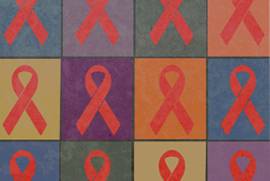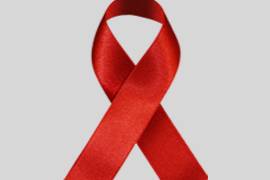
STATEMENT: Lambda Legal on FDA Blood Ban Changes: A Welcomed Huge Step Forward, Yet Further Work Needed
Blog Search
Lambda Legal responded today to new draft recommendations by the FDA on blood donation policies proposing changes to time-based deferrals in assessing blood donor eligibility, including a gender-inclusive approach and individual risk-based screening processes to reduce the risk of HIV transmission through blood transfusion. These recommendations are not final and will undergo a rulemaking process with a 60-day comment period to gather input and recommendations. In response to the FDA's proposed draft guidance, Lambda Legal HIV Project Director Jose Abrigo released the following statement:
“Lambda Legal applauds the FDA’s long overdue steps to catch up with the science and eliminate the discriminatory barriers to blood donation from the LGBTQI+ community. For decades, the Food and Drug Administration has banned blood donations by MSMs (“men who have sex with men”) as a result of the AIDS crisis in the 1980s, ignoring the evolving science and latest medical evidence. As a result, this blanket and inflexible restriction has led to unfounded and misleading stigma against the gay community. After years of pressure and advocacy, the FDA slowly relaxed restrictions against MSM blood donations (first to a 12-month deferral in 2015, and more recently to a 3-month deferral in April 2020 for individuals abstaining from sex) with no ill effect to the nation’s blood supply. The new FDA guidance and proposed regulations are a huge step forward to ending stigma against the LGBTQI+ community. We applaud the decision to screen potential blood donors according to individual risk factors regardless of gender or sexual orientation.
“It should be noted however, that much more work needs to be done to follow the science, make the risk assessment factors more inclusive and fair, and further expand the ability of everyone safely able to do so to donate blood. The current risk assessment policy still unnecessarily stigmatizes and bans people that engage in behaviors such as having multiple sexual partners and sex work. Further, the policy limits the ability to donate for those on HIV-preventative medications such as PrEP, PEP, and antiretrovirals. We must be conscious to not further stigmatize these safe sex practices and uplift individuals taking precautions. With the national blood shortage, everyone should be given equal opportunity to help their neighbors and save lives. Unfortunately, these proposed measures don’t fully achieve that. We applaud the CDC for taking these welcome first steps and look forward to working with them to improve this proposed regulation and to continue to destigmatize and equalize blood donations."




